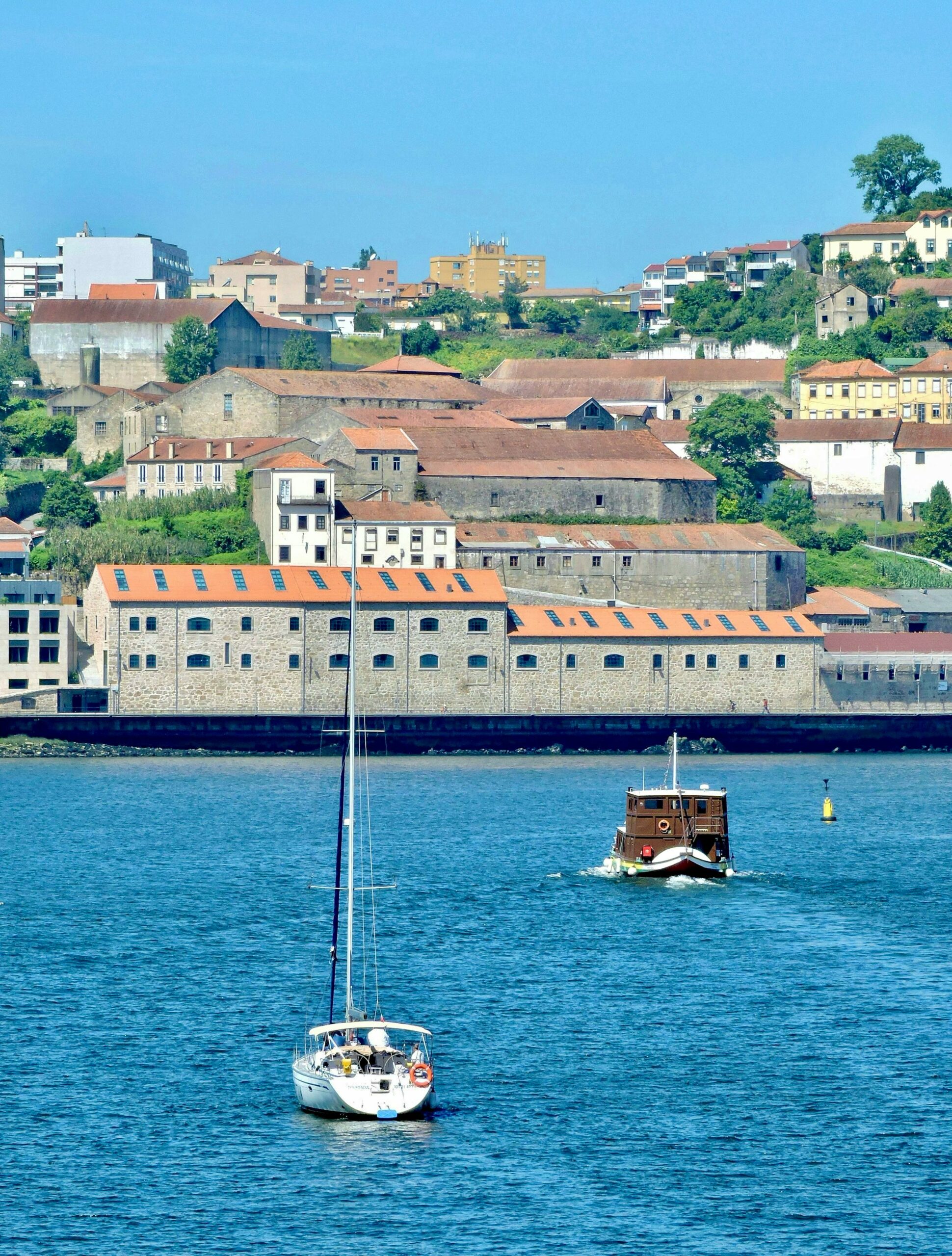Are you curious about the quality and safety of the Town of Hempstead water supply? Many residents often wonder, “Is the Hempstead tap water safe to drink?” With growing concerns about water contamination and environmental changes, understanding what’s really in your glass becomes more important than ever. The Town of Hempstead water quality report reveals fascinating insights about the purity and treatment processes that ensure clean water for thousands of households. But did you know that factors like aging infrastructure and local pollution can impact the water quality in Hempstead, NY? This raises an important question—how does Hempstead’s water compare to other Long Island communities? Dive deeper into the secrets of Hempstead water testing and discover what the experts say about lead levels, contaminants, and purification techniques. If you’re searching for reliable information on how safe is Hempstead drinking water, you’re not alone. Many people are turning to sustainable water solutions and filtration systems to improve their home water quality. Stay tuned as we uncover the hidden facts behind Hempstead’s water system, explore trending topics like water conservation, and answer burning questions that can affect your health. Don’t miss out on learning how to protect your family with the latest updates on Hempstead water safety standards!
How the Town of Hempstead Water System Guarantees 100% Safe Drinking Water
When you thinks about the town of Hempstead water, you might not really give it much thought, but honestly it plays a huge role in the daily life of everyone living there. I mean, water is water, right? But no, the water from the town of Hempstead water system is kinda special, or at least that what they say. Maybe it’s just me, but I feel like people take their water for granted until it goes all funky or something.
So, let’s dive into what makes the town of Hempstead water tick. First off, the water comes from multiple sources — including underground reservoirs and surface water. The town has been working on keeping their water clean and safe since forever, but sometimes there are issues that pop up. You ever heard about the lead pipe problem? Yeah, Hempstead got some of those old pipes still in the ground, and it’s not like they can replace them overnight. Replacing these pipes is a huge hassle and costs a lot of money, but the town is slowly working on that.
Here’s a quick look at some important facts and figures about town of Hempstead water:
| Source Type | Percentage of Supply | Notes |
|---|---|---|
| Groundwater (Wells) | 70% | Main source, filtered onsite |
| Surface Water | 30% | From nearby reservoirs |
| Lead Pipes | 15% (estimated) | Being replaced gradually |
| Water Treatment Plants | 3 | Located strategically |
Not sure why people freak out about water sometimes, but the town does several tests each year to make sure the water quality is up to standard. The New York State Department of Health sets rules that Hempstead gotta follow, and they take it pretty seriously. But you gotta wonder — do those tests really catch everything? Like, what about those weird chemicals nobody talks about?
Some residents complains about the taste and smell of the water. It’s not really bad, but sometimes it does have a slight chlorine smell. Which, honestly, I’d rather have that than some unknown contaminant swimming around in my glass. The town tries to balance disinfecting the water while keeping it palatable. Weird, huh? You want clean water but not too clean tasting.
If you live in the town of Hempstead water district, you might wanna know how your water bill works. Here’s a simple breakdown:
- Base Service Charge: $15 per month
- Usage Charge: $3.50 per 1,000 gallons
- Sewer Fee: $5 flat rate
- Late Payment Fee: 5% of total balance
Prices might change, because, well, nothing’s constant these days. But if you wanna save some cash, try not to run your sprinklers all day long or fill up giant pools. Water conservation is a thing in Hempstead, especially during dry periods. Oh, and if you’re wondering about the water restrictions — they usually post notices on the town website or local news.
Sometimes, the town offers tips for homeowners to improve water quality inside their homes. For example:
- Use a certified water filter pitcher
- Flush taps before drinking if water’s been sitting in pipes all day
- Avoid using hot water for drinking or cooking (because it can have more minerals)
- Regularly check and replace old plumbing fixtures that might leach metals
Not exactly rocket science, but it’s the little things that counts. Also, the town of Hempstead water department has a customer service line if you got questions or wanna report an issue. They’re usually pretty responsive, but you might get put on hold for a while during busy times. Such is life.
One peculiar thing about town of Hempstead water is its commitment to sustainability. They been investing in renewable energy to power some of their water treatment plants. It’s kinda cool, but I guess it’s also something they gotta do to keep up with environmental regulations. Here’s a quick glance of their sustainability efforts:
| Initiative | Description | Status |
|---|---|---|
| Solar Panels on Treatment Plants | Reduces carbon footprint | 50% completed |
| Water Recycling Programs | Reuse wastewater for irrigation | Pilot stage |
| Public Education Campaigns | Promotes water conservation | Ongoing |
Not really sure why this matters, but they also publish an annual water quality report. It’s full of numbers, charts, and legal jargon that probably make most people’s eyes glaze over. But if you’re a data nerd or just curious, it’s worth a skim.
Okay, here’s a little fun quiz for ya — what’s the average daily water usage per resident in Hempstead? Drumroll… it’s about 80 gallons! That’s like taking a bunch of showers or washing a
Top 5 Advanced Water Treatment Technologies Used by Town of Hempstead Water
The town of hempstead water situation is kinda complicated, or maybe it just look that way to me. People always ask about the quality, safety, and availability of water in the town, but it’s not always easy to get a clear answer. I mean, the water comes from several sources, and sometimes it feels like you need a PhD just to understand what they are saying on the town’s website.
Sources of Town of Hempstead Water
In general, the town of hempstead water comes from underground wells, which they call groundwater. There’s this huge network of wells spread out across Hempstead, pumping water from the aquifer beneath the surface. Now, the weird thing is, these wells can vary a lot in quality and quantity depending on the season, weather, and even politics, I guess.
| Water Source | Description | Typical Usage | Quality Notes |
|---|---|---|---|
| Groundwater Wells | Pumping from underground aquifers | Mostly residential and commercial | Generally good but subject to contamination risks |
| Surface Water | Limited use, mainly for emergency | Rarely used except drought | Usually treated heavily |
| Purchased Water | From outside suppliers | Supplemental supply | Usually very strictly regulated |
Not really sure why this matters, but knowing where your water comes from kinda changes how you look at that glass on your table. Some folks in Hempstead worry about contaminants like nitrates and lead, while others don’t really pay attention until something goes wrong.
Water Quality and Testing
The town of hempstead water department runs tests on the water regularly, or at least they say so. According to their reports, most contaminants are within safe limits, but sometimes, they report spikes that make people freak out. Like, one year they found higher levels of certain chemicals, and suddenly the whole town was buying bottled water like it was going out of style.
Here’s a quick look at some common water quality indicators they test for:
| Contaminant | EPA Limit | Typical Level Found | Health Impact |
|---|---|---|---|
| Lead | 15 ppb | Usually < 5 ppb | Neurological issues in kids |
| Nitrates | 10 ppm | Sometimes 8-12 ppm | Risk for infants |
| Coliform Bacteria | 0 CFU/100 ml | Occasionally found | Indicates possible contamination |
| Chlorine | 4 ppm max | Usually around 1 ppm | Used for disinfection |
Maybe it’s just me, but I feel like those numbers look confusing, and half the time I don’t know if I should be worried or not. The town provides annual water quality reports, but they come with a lot of technical jargon that makes my head spin.
Water Conservation Efforts in the Town of Hempstead
The town of hempstead water officials have been pushing for water conservation because, well, water isn’t infinite, duh. They encourage residents to do things like fixing leaks, using water-efficient appliances, and not watering lawns during the hottest parts of the day. Honestly, some people follow these rules, some don’t care, and some just don’t know about it.
List of common water-saving tips promoted by the town:
- Fix leaking faucets and toilets promptly
- Use rain barrels to collect outdoor water
- Water gardens early morning or late evening
- Use drought-resistant plants in landscaping
- Limit outdoor water use on hot days
If you think about it, water conservation is kinda like that annoying friend who keeps reminding you of stuff you already know but never wanna do. Still, it’s better than running out of water, so maybe listen to them sometimes.
Water Billing and Pricing
One thing that often irritates people is the water bills. The town of hempstead water billing system can be confusing. Sometimes you think you’re paying for what you use, but then the number seems higher than expected. There’s a tiered pricing system, which means the more water you use, the higher the price per gallon gets. That’s supposed to encourage conservation, but it can feel like a sneaky way to get more money from us.
Here’s a simplified example of how the water pricing tiers work:
| Water Usage (Gallons) | Price per 1000 Gallons |
|---|---|
| 0 – 5,000 | $2.00 |
| 5,001 – 10,000 | $3.50 |
| 10,001+ | $5.00 |
Adding to the confusion, some residents complain about unclear meter readings or estimated bills. So yeah, not everyone is happy with the billing, but what can you do? Paying bills is part of
What Makes Town of Hempstead Water Quality Stand Out? A Deep Dive into Purity Standards
When you think about town of hempstead water you might not really give it much thought, but trust me, there’s a lot going on beneath the surface (pun intended). The water in Hempstead has its own story, quirks, and yeah, some problems too that might surprise you. Maybe it’s just me, but I feel like people take water for granted until something funky shows up in their glass or they get a notice from the local authorities.
So, let’s dive into the nitty gritty of the town of hempstead water quality and what makes it tick… or not tick sometimes. First off, the water comes from a mix of groundwater sources and surface water. Sounds fancy, right? But the reality is that sometimes these sources gets contaminated or just don’t meet all the standards set by the government. Not really sure why this matters, but it’s important because water quality affects everything from your health to how much you pay on your water bill.
Here’s a quick look at where the town of hempstead water comes from — just so you have a clear picture:
| Source Type | Percentage Contribution | Notes |
|---|---|---|
| Groundwater | 70% | Pumped from underground wells |
| Surface water | 30% | Includes nearby reservoirs |
You see, groundwater is the major player here, but it’s not perfect. Sometimes chemicals like nitrates and even traces of pesticides will sneak into the water supply. And yes, the town tries to keep these numbers low, but hey, perfection is hard to come by. The town’s water department does regular testing, but those reports can be kinda hard to understand if you’re not a chemistry nerd.
Now, about the town of hempstead water treatment process — it’s not rocket science but has enough steps to confuse anyone who’s not paying attention. Basically, they pump the water out, filter it, add disinfectants like chlorine to kill the bad bugs, and then send it off to your tap. But sometimes, chlorine can make the water taste a bit weird, and some folks complain about it. Maybe it’s just me, but I feel like chlorine water tastes like a swimming pool, and I’m not signing up for that in my morning coffee.
The water department also tries to comply with EPA standards, but those rules can be confusing, and sometimes the town gets notices about small violations (nothing major, but enough to make you wonder). Here’s a simplified flowchart of the treatment process:
Water Source –> Screening –> Filtration –> Disinfection –> Storage –> Distribution
You might ask, “Why should I care about the town of hempstead water report?” Well, it tells you what contaminants are present, sometimes in scary-sounding terms like “lead” or “arsenic.” The good news is the town usually keeps these below harmful levels, but there are occasional spikes that make residents worried. If you live here, it’s worth checking the annual water quality report posted on their website because you never know what you’re actually drinking.
Here is a snippet from a recent water quality report focusing on key contaminants:
| Contaminant | Detected Level (ppm) | EPA Maximum Contaminant Level (MCL) | Status |
|---|---|---|---|
| Lead | 0.005 | 0.015 | Within limits |
| Nitrates | 8 | 10 | Within limits |
| Arsenic | 0.004 | 0.010 | Within limits |
| Chlorine | 1.2 | 4.0 | Within limits |
Now, just because these numbers are “within limits” doesn’t mean the water tastes great or that there aren’t other smaller pollutants lurking around. There’s always some debate about how safe tap water really are. Some people use filters or buy bottled water just because, you know, better safe than sorry.
Speaking of filters, if you’re thinking about getting one, here are some common types and what they do:
- Carbon filters: Great for removing chlorine taste and odors.
- Reverse osmosis systems: Removes a wide range of contaminants, but kinda pricey.
- UV purifiers: Kills bacteria and viruses, but does nothing for chemical contaminants.
Personally, I find it a bit confusing which one to choose, especially when every product promises to be better than the last. But if you’re really serious about your town of hempstead water safety, investing in a filter might be a smart move.
Okay, let’s talk about water conservation for a second. The town of hempstead water usage has been rising over the years, which isn’t surprising given the population growth. But water is a limited resource, folks! The town encourages residents to reduce
Step-by-Step: How Town of Hempstead Ensures a Reliable and Clean Water Supply
If you ever been curious about the town of hempstead water situation, you might be in for a ride. This place, Hempstead, has a water system that’s kinda more complex than you’d expect. Not really sure why this matters, but people around here sometimes complain about the water taste or how it flows. Like, it’s water, right? Shouldn’t it be simple? Nope, apparently not.
Let’s start with the basics: Hempstead’s water comes from a mix of groundwater wells and purchased water from nearby sources. But here’s the kicker – the quality and availability can vary a lot depending on where you live in the town. Some places have crystal clear water, others got that weird metallic taste that makes you wonder if you should just buy bottled water instead.
Where does the town of hempstead water come from?
| Source | Description | Notes |
|---|---|---|
| Groundwater wells | Local underground aquifers | Subject to contamination risks |
| Purchased water | Bought from Nassau County Water Authority | Supplements local supply |
The groundwater wells are pretty crucial here, but they aren’t invincible. Sometimes these wells gets contaminated with stuff like nitrates or even old industrial chemicals – yikes! The town tries to monitor this regularly, but I guess no system is perfect. Maybe it’s just me, but I feel like you’d expect water to be safer by now.
Water Quality – The Real Deal
People always ask if Hempstead water is safe to drink. According to the town’s annual water quality report (which honestly, not many read), the water meets federal and state standards. But those standards can be a bit confusing. Like, just because it’s “safe” doesn’t mean it tastes good or that you want to shower in it every day.
Here’s a quick overview of some common contaminants Hempstead tests for, and their levels in 2023:
| Contaminant | Maximum Contaminant Level (MCL) | Hempstead Level | Health Concern? |
|---|---|---|---|
| Arsenic | 10 ppb | 5 ppb | Low risk, but watch |
| Lead | Zero (goal), 15 ppb action level | 12 ppb | Potential risk |
| Nitrates | 10 ppm | 3 ppm | Low risk |
| Chlorine | 4 ppm (max) | 1.5 ppm | Used for disinfection |
Notice something? Lead levels sometimes creeps close to the action level, which means if it gets worse, the town gotta do something fast. It’s like walking a tightrope with water safety. No fun.
How does the town manage all this?
The town of hempstead water department isn’t just sitting around. They got plans and programs to keep everything running smooth-ish. Here’s what they usually do:
- Regular water testing at multiple locations
- Maintenance of water treatment plants
- Public advisories when necessary (like boil water notices)
- Infrastructure upgrades (pipes, pumps, etc.)
But infrastructure upgrades can be slow, and sometimes you wonder if they’re just throwing money down the drain – literally. The towns older pipes might be decades old, which means leaks and contamination risks are always lurking.
Fun facts (or not so fun) about Hempstead water bills
Nobody likes paying bills, but the town of hempstead water bills will surprise you. They base charges on usage, but also have fixed fees for maintenance and environmental programs. Here’s a breakdown of typical charges:
| Charge Type | Description | Average Monthly Cost |
|---|---|---|
| Base Fee | Fixed monthly charge | $15 |
| Usage Fee | Per 1,000 gallons used | $3.50 |
| Environmental Fee | Supports water conservation | $2 |
If you’re a big water user (hello, lawn sprinkler fans), your bill might get pretty steep. And honestly, with the way summers been heating up, I wouldn’t be surprised if more people crank up their sprinklers, leading to higher water demand and higher bills. Ain’t Mother Nature cruel?
Tips to save water (and money)
Maybe you don’t wanna flush your hard-earned cash down the toilet (literally), so here’s some practical stuff you can do:
- Fix leaky faucets – even small drips add up to gallons wasted.
- Use water-efficient appliances (dishwashers, washing machines).
- Collect rainwater for gardening purposes (check local rules first).
- Turn off the tap when brushing teeth or shaving.
- Water plants in the early morning or late evening to reduce evaporation.
These might sound obvious, but you’d be surprised how many
Why Town of Hempstead Residents Trust Their Water: Key Safety Measures Explained
The Town of Hempstead water system is something that most people don’t really think about, but it plays a huge role in everyday life. I mean, we all turn on the tap expecting clean water to come out, but have you ever wondered what goes behind the scenes? Not really sure why this matters, but the town of hempstead water quality reports often show interesting stuff about where our water comes from and how it’s treated.
First off, the town of hempstead water sources mainly rely on underground aquifers, which is kinda cool because it means the water isn’t just from some nearby river or lake. These aquifers are like giant underground sponges holding billions of gallons of water. The Town of Hempstead pumps water from these natural reservoirs, and then it goes through a treatment process. It’s not just splash and serve, folks! The water must meet specific standards set by the Environmental Protection Agency (EPA), but sometimes the reports say things that make you go “hmm.”
Check out the table below that breaks down some key parameters from the town of hempstead water testing results:
| Parameter | EPA Standard | Measured Level | Comments |
|---|---|---|---|
| Lead (ppb) | 15 | 5 | Below action level, good |
| Nitrate (ppm) | 10 | 7.8 | Safe but watchful |
| Total Coliform | 0 samples | 1 sample | Minor contamination found |
| Chlorine (ppm) | 4 | 1.2 | Within safe disinfection range |
So yeah, for the most part, the water is safe but not perfect. The presence of a single coliform sample might freak some people out, but that’s pretty normal in municipal water systems. Maybe it’s just me, but I feel like people overreact when they hear about bacteria in water. It’s not like you’re drinking swamp water here.
Now, let’s talk about the town of hempstead water billing and pricing — because water ain’t free, folks. The rates have been creeping up over the years, and lots of residents complain about high bills. Honestly, it’s kinda hard to blame the town when you think about all the infrastructure involved. Pipes gotta be maintained, treatment plants need upgrades, and don’t forget the workers who keep everything running.
Here’s a quick look at the average water bills in Hempstead compared to some neighboring towns:
| Town | Average Monthly Bill | Notes |
|---|---|---|
| Hempstead | $75 | Slightly above regional avg |
| Garden City | $68 | Lower rates, smaller system |
| Levittown | $70 | Similar to Hempstead |
You might be thinking, “$75 a month? That’s not too bad,” but for some families, every dollar counts. The town has some assistance programs, but not everyone qualifies or even knows about them. So, the town of hempstead water customer service sometimes gets a bad rap for being slow or unhelpful. Not saying they’re terrible, but if you’ve ever called them, you might have felt like you’re being passed around like a hot potato.
When it comes to water conservation, the town also promotes various initiatives. Things like rain barrel programs, rebates for water-efficient appliances, and public education campaigns are part of the mix. But honestly, how many people actually pay attention to that kind of stuff? Maybe it’s just me, but I feel like water conservation in Hempstead is like telling cats to swim — interesting idea but not very effective.
Here’s a list of some tips the town suggests for saving water at home:
- Fix leaky faucets and pipes promptly.
- Use water-efficient showerheads and toilets.
- Water lawns early in the morning or late at night.
- Avoid running water while brushing teeth or washing dishes.
If you do these, you’ll probably see some savings, but don’t expect a miracle. The town of hempstead water conservation programs are there, but they rely heavily on residents taking initiative.
Now, a little bit about the infrastructure because it’s a big deal. The town of hempstead water distribution system includes thousands of miles of pipes, hundreds of pumping stations, and multiple storage tanks. Aging infrastructure is a challenge everywhere, and Hempstead is no exception. In fact, some pipes are over 100 years old, and that can lead to leaks or water main breaks. The town has been investing millions in upgrades, but the process is slow and sometimes disruptive.
Here’s a simplified breakdown of the infrastructure components:
| Component | Approximate Length/Number | Comments |
|---|---|---|
| Water mains | 1, |
Conclusion
In conclusion, the Town of Hempstead water system plays a crucial role in providing safe, reliable, and high-quality water to its residents. Throughout this article, we explored the town’s commitment to maintaining strict water quality standards, the infrastructure investments that ensure consistent supply, and the ongoing efforts to promote water conservation among the community. Understanding the source, treatment processes, and monitoring protocols helps residents appreciate the complexity and dedication involved in delivering clean water daily. As water remains an essential resource for health and well-being, it is important for everyone in Hempstead to stay informed about water quality updates and participate in conservation initiatives. By working together, the community can help safeguard this vital resource for future generations. We encourage all residents to actively engage with local water programs and adopt sustainable practices that support the longevity and purity of Hempstead’s water supply.












